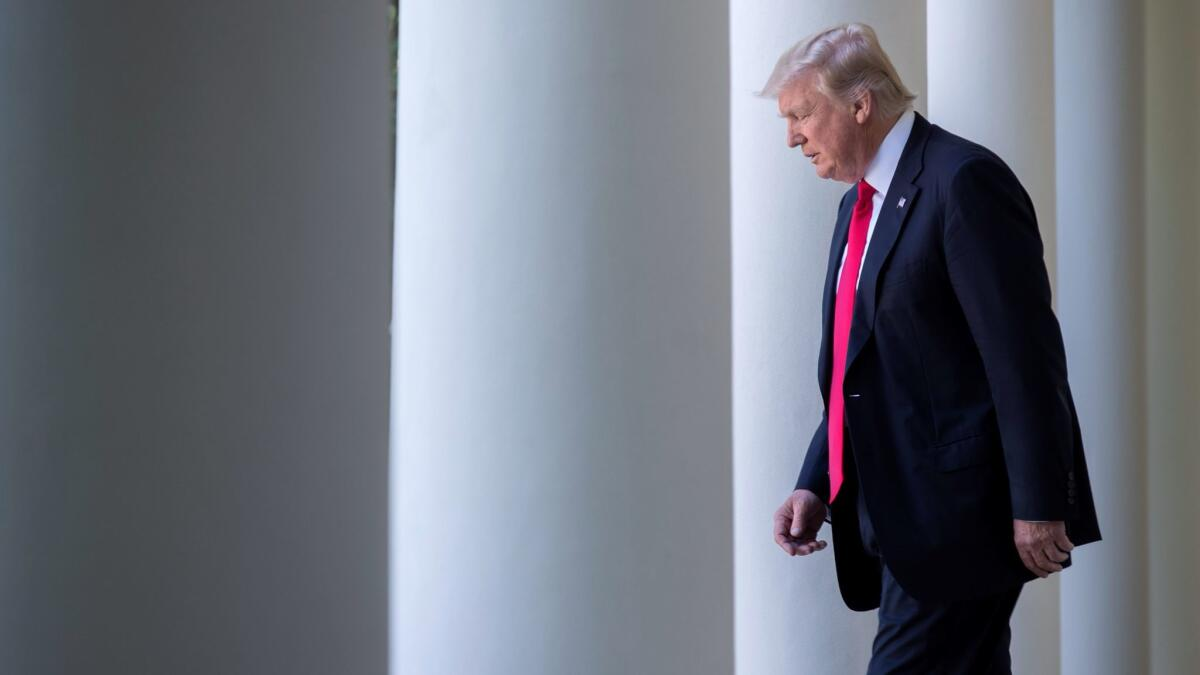Putting Presidents in Jail
Donald Trump has escaped the ultimate political punishment for the second time, setting the Senate’s record on presidential convictions at 0-4, and underlining the extreme recalcitrance built into the Constitution’s mechanism for dealing with rogue presidents. The Framers wanted to set a high bar for impeachment and conviction, hence the 2/3 vote required in the Senate. But that high bar has since the Founding been raised almost beyond reach by party loyalty and gerrymandering, neither of which was truly foreseen by the Framers. The sentiments of a bare majority of voters in the minority party—a mere twenty million people—are now probably a sufficient firewall against Senate conviction of a president.
The rebuke to the ex-president was nonetheless historical. He is the only president impeached twice and the only one found guilty by senators in his own party. His actions during his final days in power will no doubt cement his legacy as the foremost example of a bad president for some time to come.
Mitch McConnell, despite essentially agreeing that Trump violated his Oath and incited an insurrection, voted to acquit on jurisdictional grounds, holding that impeachment is primarily about removal from office and that the Senate therefore cannot try an ex-president. However, this does not, McConnell said, amount to a “January exception.” Presidents, under his reasoning, can indeed preemptively resign to avoid being barred from future office, but McConnell was at pains to emphasize that ex-presidents can still face justice in the form of civil and criminal charges.
Perhaps many Americans saw a silver lining in McConnell’s words, but the scenario he raises is not a hopeful one. Based on existing evidence, it seems unlikely that Donald Trump would be convicted in criminal court for any of his transgressions related to the election and the insurrection, grave though they are. Trump’s highest crime is the full-scale assault he has made on the peaceful transfer of executive power, but a criminal conviction, even if achieved, would be as likely to further undermine that most sacrosanct of American political traditions as to reinforce it. “We don’t put presidents in jail,” Senator Jon Tester said, and for good reason. Fear of politically motivated prosecution is perhaps the greatest enemy of the peaceful transfer of power. “Lock Her Up” was, for this reason, Trump’s first great assault on American democracy.
George Washington left power willingly after eight years, famously setting the example that has endured for over two centuries. But why did he do it, when so many others throughout history have not? For the sake of civic glory and republican principles? Sure, but such high-flown reasons would surely have been insufficient to release his grip on power if he had feared personal retribution by a succeeding administration. Perhaps the greatest political accomplishment of the American Founding was the creation of that relative peace of mind that made Washington’s return to Mt. Vernon thinkable.
Convicting an ex-president in a Senate impeachment trial is awkward, but far from constitutionally untenable. It would have merely confirmed an existing, if tentative, precedent, and one no more liable to abuse than impeachment ever was. Senator Burr, in one of the few hopeful surprises of this drama, saw the bigger picture and should be commended for his vision and courage in this vote. Forty three other Senate Republicans—including Senator Tillis—wasted a valuable opportunity to reaffirm the republican character of our government and re-assert the centrality of the legislature over the increasingly imperial Executive Branch. They also lost for the country our one real chance to bring the ex-president to justice for his high crimes.
A Senate conviction and disqualification is what Trump and the country deserved. A criminal conviction related to Trump’s insurrectionary attempts to overturn the election would risk further rending the political fabric of the country, and it would be a form of justice at once too heavy-handed and too trivial to fit the crime.
-Jake Greear



Comments
Post a Comment